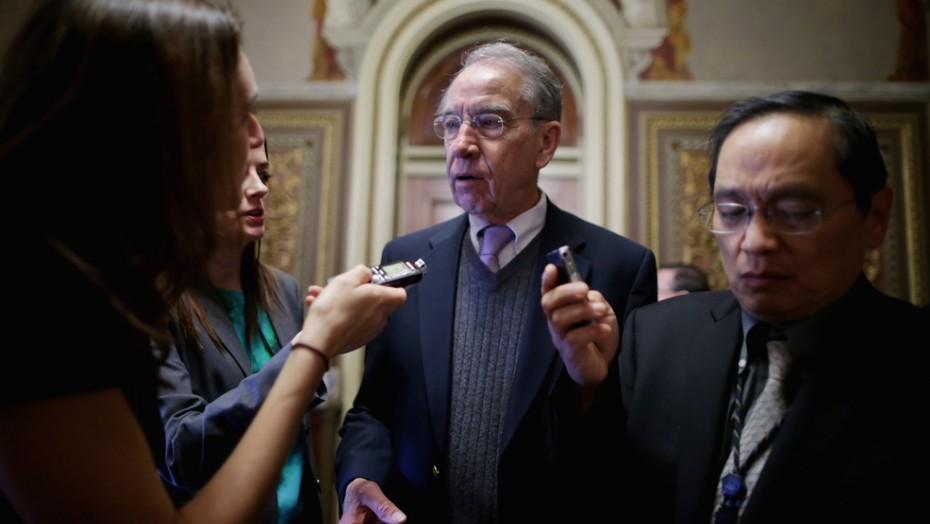
The Senate is close to unveiling a criminal-justice-reform bill. Sorting out mandatory minimums was always going to be the hardest part.
In March, Sen. Chuck Grassley, the newly empowered Senate Judiciary Committee chairman, delivered an impassioned speech from the floor on the dangers of the "leniency industrial complex."
According to Grassley, there was a growing misconception out there that mandatory minimums for drug offenders needed to be reduced.
"The arguments for the Smarter Sentencing Act are merely a weak attempt to defend the indefensible," Grassley said of a proposed reform bill. "What I have called the leniency industrial complex refers to the people who are sentenced to drug mandatory-minimum sentences as 'nonviolent.' " He argued that "any truly nonviolent offenders would qualify" for a "safety valve" already available in existing law.
Now, Grassley could be just days away from unveiling a major bipartisan justice-reform package that would seek to reduce recidivism and give inmates the chance to reduce their sentences with good behavior. The bill also will offer changes to the way judges dole out mandatory minimums.
Grassley has moved on the issue of mandatory minimums. While a bipartisan group of senators is still working on the final bill, it's clear that the Republican from Iowa has come a long way.
"The points of negotiation are the ones you would expect, about in what areas mandatory minimums should be adjusted and to where they should be adjusted," says Democratic Sen. Sheldon Whitehouse, a key negotiator for justice reform in the Senate.
Unlike four months ago, today it is understood that any justice-reform package will include provisions that give judges more flexibility on sentencing. Behind the scenes, Grassley has fought to ensure that the provisions in the bill are not just rehashes of the Smarter Sentencing Act he was opposed to, but changes in mandatory minimums are coming.
"It's not as far as I would like, but we are getting somewhere," Sen. Patrick Leahy, a sponsor of the Smarter Sentencing Act, told National Journal.
On mandatory minimums, Grassley insisted earlier this year that senators negotiate from scratch.
"It was a long process, and he came in insisting on a different approach and we said, 'All right, let's take your approach and see how close we can come to our goal.' And he has worked in good faith with us and we're close," says Minority Whip Dick Durbin.
At this point, senators on both sides of the aisle report negotiations are closer than they have ever been. Senators have agreed that high-risk offenders, who are considered dangerous either because they deployed a weapon in a crime or have a history of violence, won't be eligible for the so-called safety valve. A narrow subset of nonviolent drug offenders will be.
"What we are trying to do is to make sure that those who are guilty of drug offenses do not have other aggravating factors such as using a gun, violence, or gang activity. We are working through the language very carefully on that," Durbin said. "How do we get the gang leaders and the brains of the gang separated from the rank and file?"
- Publish my comments...
- 0 Comments
